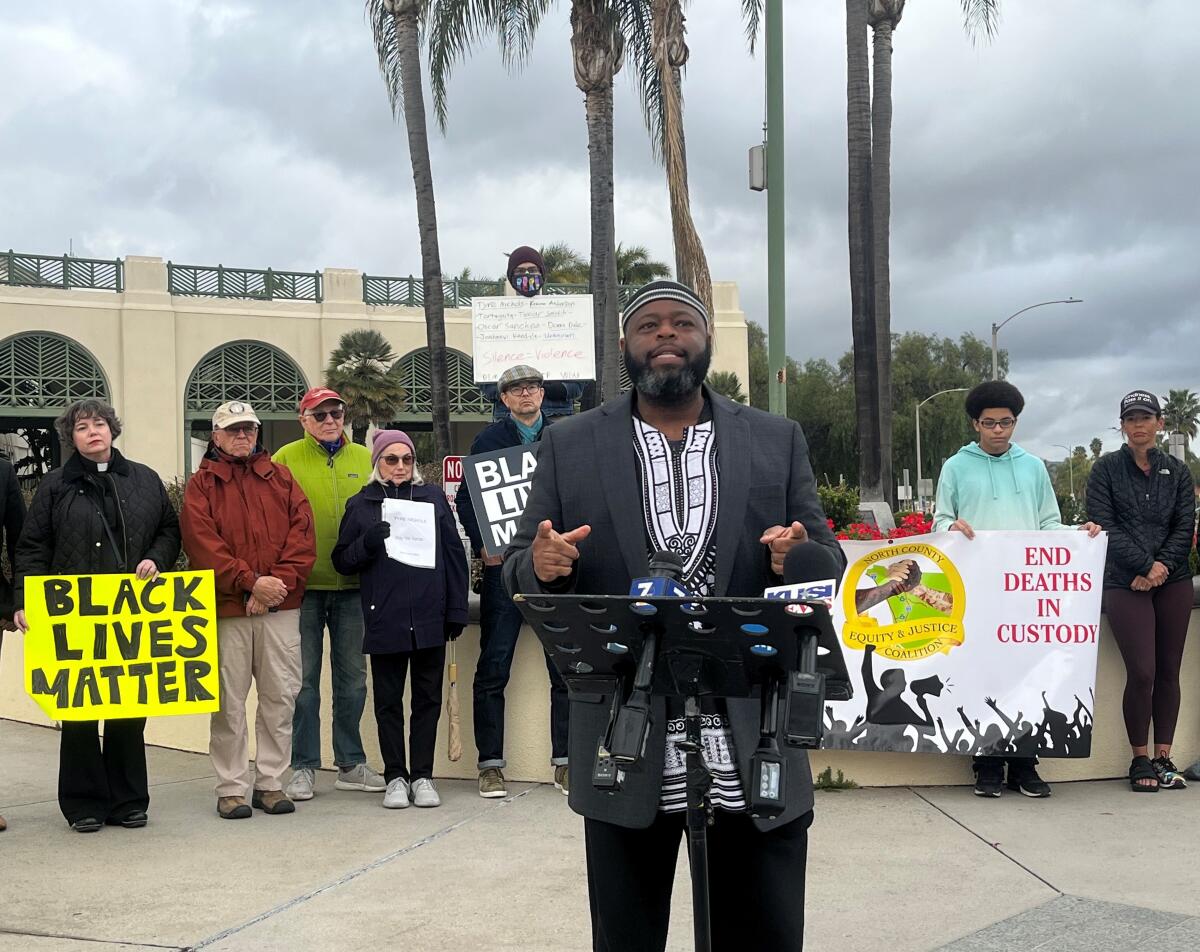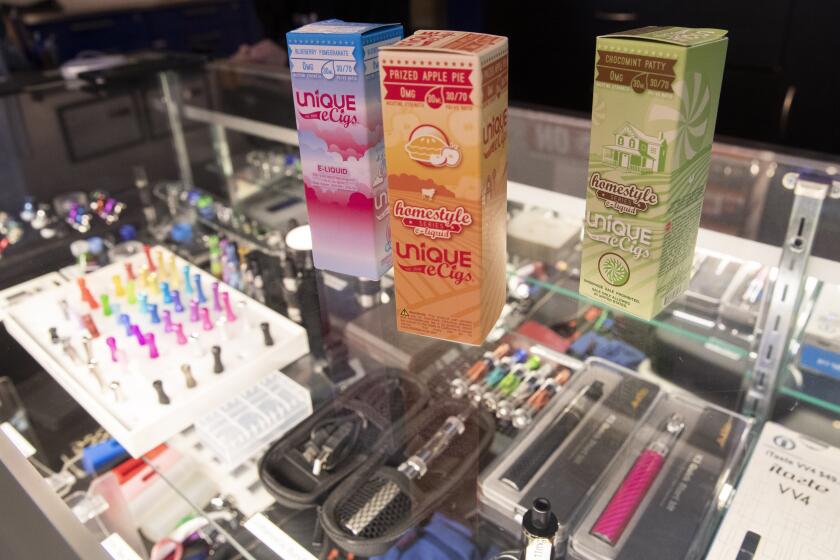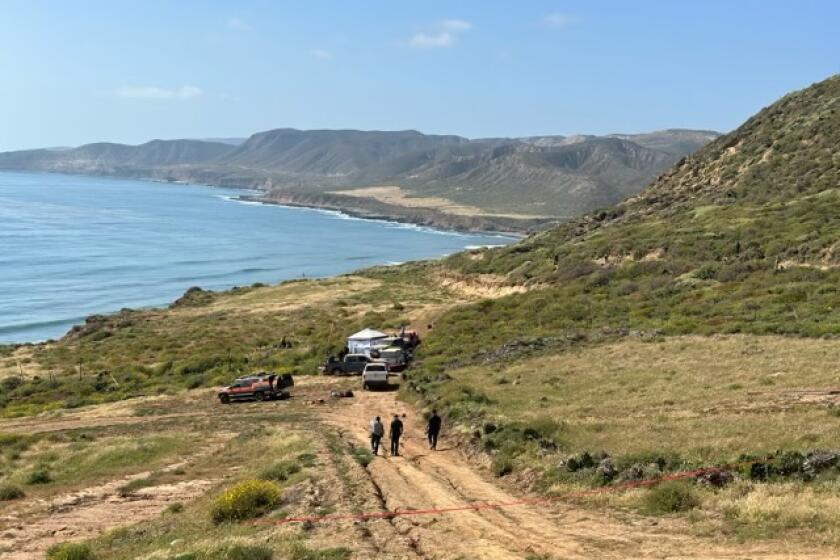Protesters in Escondido speak out against police brutality after deaths of Tyre Nichols, Keenan Anderson

About two dozen demonstrators met outside Escondido City Hall on Sunday and spoke of the need for changes in the culture of law enforcement
Outrage over the recent deaths of two men at the hands of law enforcement officers in Memphis and Los Angeles prompted around two dozen protesters in Escondido to speak out against police brutality on Sunday.
The protest was staged in response to the deaths of Tyre Nichols, who was beaten by officers in Memphis after being pulled over Jan. 7, and Keenan Anderson, who was stunned with a Taser several times by officers in Los Angeles on Jan. 3.
Nichols, a 29-year-old father and FedEx employee, died three days later from his injuries. Anderson, a 31-year-old father and 10th grade teacher, died several hours after his encounter with police.
“Whatever happened to cops peacefully handling situations?” Dario Miller, 15, asked Sunday during the protest outside Escondido City Hall. “Whatever happened to cops protecting people?”
Standing on the corner of North Broadway and West Valley Parkway, several speakers said the deaths of Nichols and Anderson point to a need for change in the culture and practices of law enforcement that result in violence, especially against Black men. Both Nichols and Anderson were Black.
The Rev. Sharon Wylie of Chalice Unitarian Universalist Congregation in Escondido recalled the protests across the nation after the murder of George Floyd by police in Minneapolis in May 2020.
“Three years later, we’re in danger of becoming numb to the persistence of police brutality,” Wylie said. “At times like this it can feel like too little has changed, and that change is coming too slowly.”
But demands for police reform must continue, Wylie said.
Several speakers said the issue is not a lack of diversity among police officers but rather a culture of law enforcement they say lacks accountability.
Although the officers charged in Nichols’ death are Black, “what we know is that the blue of that uniform meant more to them than the Black of their skin,” said Mali Woods-Drake, president of Encinitas 4 Equality. “And the problem lies in the blue of that uniform.”
Yusef Miller, of the North County Equity and Justice Coalition, called for an end to qualified immunity, a legal doctrine that generally protects government employees, including police officers, from lawsuits unless they violated clearly established statutory or constitutional law.
“The qualified immunity makes it so that law enforcement (feel) they have armor on that cannot be penetrated,” Miller said. “Once they fear for their career, they fear for their financial situation, then maybe — maybe — they’ll start changing some of their actions on the streets.”
The protest was the latest in San Diego County. On Friday, about 50 protesters gathered outside the County Administration Center in downtown San Diego to decry Nichols’ death. That was one of several across the country, just hours after authorities in Memphis released video footage of the beating death of Nichols.
The latest news, as soon as it breaks.
Get our email alerts straight to your inbox.
You may occasionally receive promotional content from the San Diego Union-Tribune.



